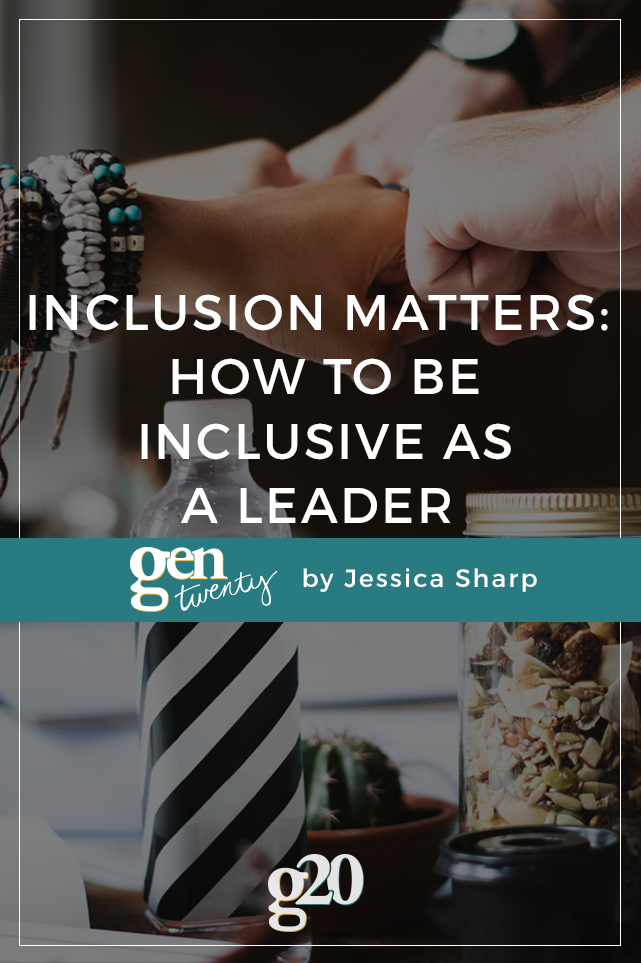
Mahatma Gandhi was believed to have said, “No culture can live if it attempts to be exclusive.”
Diversity is a bit of a buzzword right now. There is much talk about the importance of having a diverse workforce. Diversity certainly matters. It is important to have diverse leaders and employees, but as a former diversity practitioner, inclusion is equally as important (if not more important) than diversity.
Verna Myers, a diversity trainer who has a great TED talk, says “Diversity is being invited to the party. Inclusion is being asked to dance.” I don’t know about you, but I want to be asked to dance. Jennifer Brown, another diversity trainer says diversity is the who and what, and inclusion is the how.
As an employee without diversity or inclusion in your title, should inclusion be something you think about? Well, yes.
Research has indicated that “people want to feel included, heard and valued. If inclusion is not present, diversity won’t be sustainable.” A lack of belonging can negatively impact a company’s culture and bottom line. Think about it–when you do not feel included or like you are valued, you will do the minimum to keep your job. I have done my best for organizations and groups where I have felt like I am really a part of the group. Inclusion matters.
Inclusion is something that everyone has to take on, regardless of your title and role within an organization. We all need to have inclusion in mind at work in order to strengthen the workplace. Additionally, it can be a benefit to your career and will show your supervisors that you care about what is best for your company. Being an inclusion-minded employee is a benefit to you and your company.
There are certain characteristics of inclusion minded employees that all of us can embody:
1. Don’t use gendered language.
Statements like ‘you guys’ can be exclusionary to women or nonbinary people in the room. In general, try to think about your words. You have no idea how powerful your words can be, either in the positive or negative.
2. Be curious.
When you work with employees who are different from you (in whatever way that means), get curious about those differences. Trying to understand your co-workers can go a long way to making them feel included. I will say, you have to find a balance between doing some research on your own and getting to know people who are different through relationship building. It isn’t other’s job to completely educate you on their cultures, but being curious is a good thing.
3. Know your biases.
This one is pretty important. In order to be open to differences, it is important to understand the unconscious biases that you have. We all have them, it is part of how our brains are hardwired. Understanding your biases and working to mitigate them can help you work towards inclusion.
You can take this online assessment to understand your biases. This TED talk by Verna Myers is a great one to help you understand more about bias and what to do about them.
4. Collaborate.
When you are in meetings or working on projects, challenge yourself to think about who isn’t there. Who should be at the table but isn’t? Our brains naturally go to people that are similar to us. When we are tasked with whom to include, it is easy to miss people who are different. It is natural, but we have to train our brains to think differently.
In general, try to be a really good human. Assume that people are coming from a good place. Some people will argue that the things I mentioned are being politically correct, I call it being a decent human. I don’t really care what you call it, these traits are good for business.
Special note for leaders: If you are a leader within your organization, work to set an example for your team and other leaders.
What is your opinion about inclusion? Do you think it matters? What do you think inclusion looks like? Let us know!
